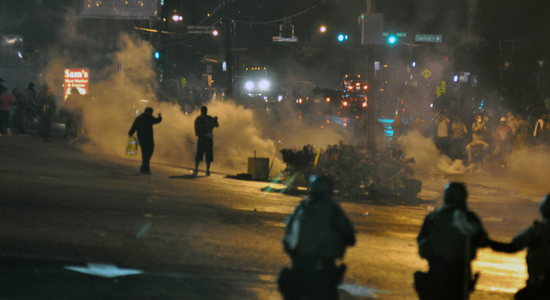How a State Health Foundation is Charting a Course Past Tragedy
/
Health philanthropy is a much broader field than most people realize, and it's lately grown broader, with more funders looking upstream at the social, economic, and environmental drivers of poor health.
We're not just talking about top national grantmakers like Robert Wood Johnson and Kresge, which have become well known for their wide-ranging health grantmaking. As we report often, a number of state-level health foundations are also engaged in upstream initiatives, or otherwise thinking broadly about their mandates to improve people's well-being. Just last week, we wrote about how the New York State Health Foundation is working on affordable housing.
Related: Why This Health Funder Is Supporting Affordable Housing in NewYork City?
Yet another case in point is the Missouri Foundation for Health, a health conversion foundation created in 2000 with proceeds from the sale related to the for-profit conversion of Blue Cross Blue Shield of Missouri. This outfit has done some notable work related to racial equity recently.
The 2014 shooting in Ferguson, Missouri, of Michael Brown, an 18-year-old black man, by a white police officer, intensified debate about racism and law enforcement that's as old as the country. After the shooting, Missouri Gov. Jay Nixon appointed the Ferguson Commission to develop recommendations to advance racial equity. In 2015, the commission published its report and recommendations, which involve issues of violence, justice, and other matters central to the well-being of vulnerable populations.
Unfortunately, the Brown shooting was just one of many tragedies reported in the last two years. And while it's easy to question whether another commission report will make a dent in these entrenched social problems, in Missouri at least, optimism is strong.
Which brings us to MFH, which has committed $6 million to address the health issues highlighted in the Ferguson Commission "Forward through Ferguson" report. Grantmaking will initially focus in six areas: grassroots advocacy, gun violence, juvenile justice and behavioral health, food insecurity, toxic stress and trauma-informed care, and school-based care. So far, MFH has approved two grants: the Regional Health Commission’s (RHC) Alive and Well STL initiative, and St. Louis University’s Shut it Down: School to Prison Pipeline project.
Since its establishment, MFH has evolved beyond basic health-related grantmaking into a clearinghouse of information and a hub for community partnerships. Health-related efforts focus in four areas: childhood obesity, expanding healthcare coverage, oral health and infant mortality. The organization also works to respond to self-identified community health needs, and supports education and advocacy that figure into larger policy strategies.
On that last point, MFH is not afraid to talk about using policy work to achieve systemic change or about activating ordinary citizens to engage in advocacy. This activist stance reminds us of another state health funder we follow closely, the Colorado Health Foundation.
Related: Here's Another Health Funder Who Isn't Afraid of a Fight
In other words, it's not surprising to see MFH really engaging with the issues raised by Ferguson and the complex problems it brought into the national spotlight. Those discussions at MFH started right after the shooting of Michael Brown. The 200-page Ferguson Commission report, which focused on the St. Louis, Missouri, region provides substantial direction.
MFH's grantmaking in Missouri is important for the people in the Ferguson area. But the impact could end up being much broader, with programs in Missouri serving as a model for pretty much everywhere else in the U.S. where racism plays a role in community well-being—a depressingly large segment of the country.








